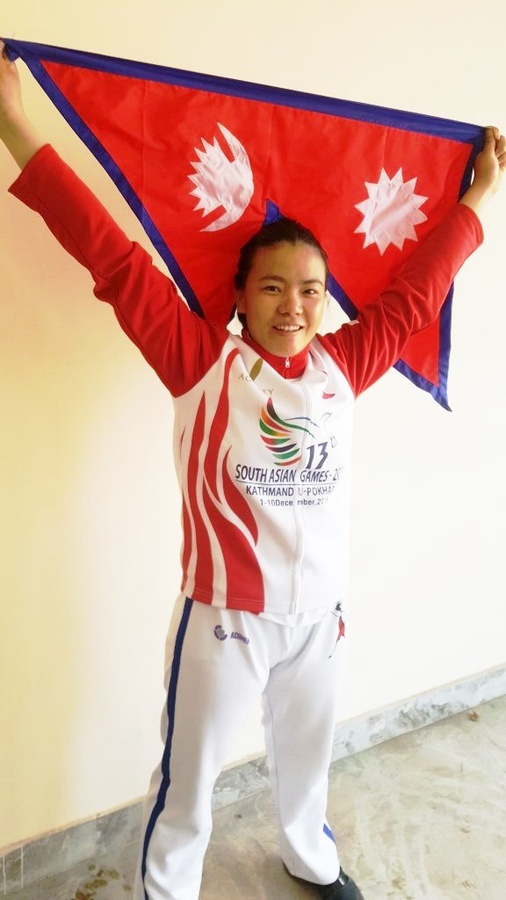Kathmandu, Nepal, December 4, 2019: Top local karate official Dhawa Gurung believes the brave Gurkha spirit is what makes the martial art an ideal sport for his countrymen as the hosts dominated the mat at the Satdobato Karate Hall at the 13th South Asian Games on Tuesday. “We are brave, courageous and this is what is needed in karate. Nepal people have the fighting spirit and this is just perfect for the sport,” explained Gurung, Deputy President of the Nepal Karate Federation, as the hosts collected their 10th gold medal in karate. “If you look at history, Nepal was always independent. We were strong. In fact, the British colonised 48 countries all over the world using our Gurkha soldiers. This fighting trait in our blood makes us ideal candidates for karate,” Gurung pointed out. He may have a point. Across the karate hall, Nepalese taekwondo athletes were matching gold for gold won by the karatekas. When the South Asian Games was hosted for the second time by Nepal, in 1999, the two sports accounted for 28 of the 31 gold medals won. It seemed history was repeating itself 20 years on, with the majority of Nepal’s gold rush over the first two days coming from these two martial arts. Anupama Magar, 29, added another gold medal – in women’s individual kumite in the +68kg category defeating her Pakistani opponent – making it hard to hear Gurung expound on his theory with the crowd wildly cheering the local girl. “So far we have won 10 gold medals in karate but I’m not all that happy for our target was to win 15 gold medals from the 19 events. We will fall short of that,” said Gurung, who is also a member of Nepal’s government-run National Sports Council. “We will not be able to match the number of golds we won when these Games were hosted by us the last time. I don’t blame the athletes for they have given everything. It is us, the officials, who have to carry the load,” added Gurung. With more than a million participants across Nepal, karate is top of the pops in popularity. There are 3,200 clubs as well as 500 schools and colleges where karate is part of the sports curriculum. In the police, karate is basic training for everyone from constable up to a superintendent. “While football and cricket might be the top two team sports in the country, karate is the number one individual sport,” says Gurung.
Gurkha spirit gives Nepal Karate a powerful punch



